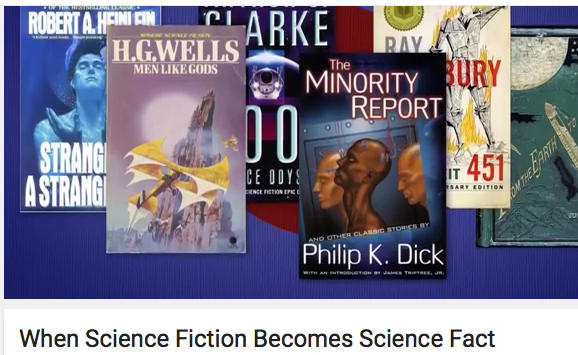I’ve been thinking about the science and fiction map again, and about a possible event looking at the connections between imagination and invention – and who exactly is influencing whom here?
Is it possible to write good science fiction without a good understanding of science and do the thoughts contained within academic institutions naturally permeate into the broader public consciousness, thereby creating a series of self-fulfilling prophesies? (if enough people think about something someone will write about it and then someone will eventually invent it). Perhaps a panel discussion one evening with a couple of academics and sci-fi writers?
Nice PBS (US) video on the subject here – 8 minutes.
Another nice link here.


